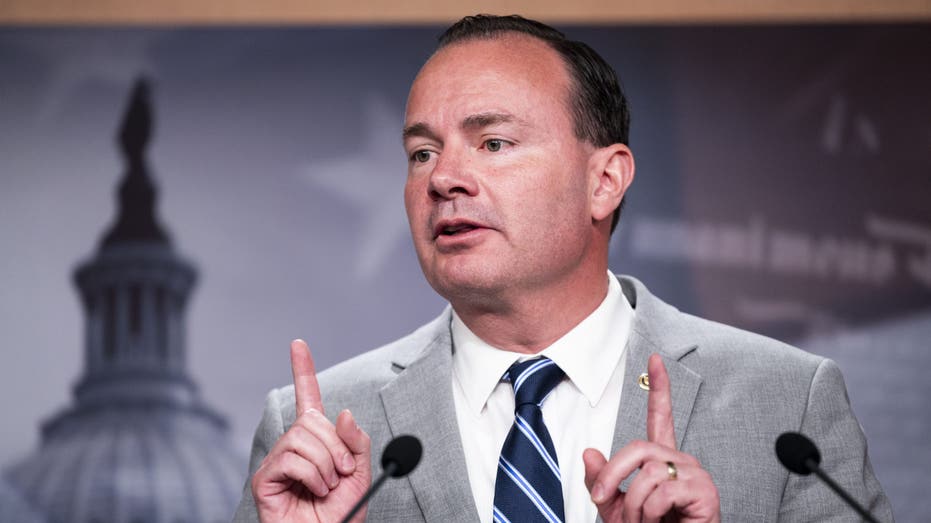President Donald Trump is seeking to revive the struggling U.S. shipbuilding industry that is drastically lagging behind China, and recently signed an executive order to kick off a series of initiatives aimed at growth.
Specifically, the April 10 order requires agencies to craft a Maritime Action Plan and instructs the United States Trade Representative to provide a list of recommendations to deal with China’s “anticompetitive actions within the shipbuilding industry,” among other things.
But there is one, century-old law that is the cornerstone of the U.S. shipbuilding industry that proponents argue is paramount for national security purposes, while critics claim is responsible for significantly stifling the U.S. shipbuilding industry: the Jones Act.
US RISKS PUSHING EUROPEAN ALLIES INTO CHINA’S ARMS WITH NEW TARIFFS, EXPERTS WARN
The controversial Jones Act is a measure included in the Merchant Marine Act passed in 1920, which requires that only U.S. ships carry cargo between U.S. ports and stipulates that at least 75% of the crew members are American citizens. Additionally, it demands these ships are built in the U.S. and owned by U.S. citizens.
The Merchant Marine Act outlines various regulations for maritime commerce and maintenance of ships within the U.S.
While proponents of the Jones Act claim it beefs up national security and prevents foreign countries access to the U.S., critics argue that the law is outdated and hampers competitiveness in the industry while driving up shipbuilding costs.
Veronique de Rugy, a senior research fellow at the Mercatus Center at George Mason University, told Fox News Digital Thursday, “Anyone who is serious about reviving the shipping industry should basically start by getting rid of the Jones Act.”
“It’s not everything, but it’s a start,” she said.
The law has led to fewer ships being built, according to de Rugy, because it’s more costly to build them in the U.S. than in countries like China, South Korea or Japan, which dominate the shipbuilding market. Over time, this has led the U.S. to acquire an obsolete an aging fleet, she said.
HOW WE GOT TO LIBERATION DAY: A LOOK AT TRUMP’S PAST COMMENTS ON TARIFFS
Trump’s efforts to reinvigorate the U.S. shipbuilding industry come as the U.S. trails near peer competitors like China in shipbuilding. China is responsible for more than 50% of global shipbuilding, compared to just 0.1% from the U.S., according to the Center for Strategic and International Studies.
Colin Grabow, an associate director at the Cato Institute’s Center for Trade Policy Studies, said that while the Jones Act isn’t entirely to blame for all the problems facing the shipbuilding industry, it has majorly undercut shipbuilding in the U.S.
“I think the bar has been set so low, it is hard not to think that, absent the Jones Act, that we’d be doing any worse,” Grabow said. “And in fact, I think we’d do better. And why do I think we’d do better? It’s because…fundamentally, I think an industry that doesn’t have to compete will become uncompetitive. I think it’s just kind of axiomatic.”
Lawmakers, including Sen. Mike Lee, R-Utah, have launched efforts to repeal the Jones Act. For example, Lee introduced the Open America’s Waterways Act in January 2024 to rescind the law.

Lee’s office confirmed to Fox News Digital Thursday that the senator would introduce the legislation again in this Congress.
However, previous efforts to repeal the Jones Act have proven unsuccessful, and the measure maintains strong backing from a bipartisan cohort of lawmakers in Congress. Backers claim that the law fosters national security by maintaining a commercial fleet capable of ferrying military cargo in times of conflict and ensures that foreign nations don’t have access to U.S. waterways.
Additionally, military leaders have voiced support for the measure.
For example, Air Force Gen. Randall Reed, commander of U.S. Transportation Command, told Sen. Mazie Hirono, D-Hawaii, and other lawmakers on the Senate Armed Service Committee in March that the law is pivotal for military readiness.
“The Jones Act allows us to actually have shipping resources,” Reed said. “Because of that Act, we have a way to make sure that we can build ships here in the United States, that we can sail those ships to maintain commerce, that we can produce the crews that sail those ships, so that we have a core of” mariners.
“At the same time, if the nation needs folks to go to sea, we can call on that force to sail,” Reed said. “We will be more secure in that way.”

Additionally, the Navy League of the United States, a nonprofit, advocacy organization for the maritime services, regularly has stated that the Jones Act supports the Coast Guard’s border security mission.
“Without the Jones Act, the Coast Guard and Customs and Border Protection would face the new burden of ensuring foreign mariners are properly vetted, including work permits, at hundreds of inland waterway locations to preclude homeland security incidents,” the Navy League said in a policy document released in 2023.
Meanwhile, Trump has signaled interest in some kind of reforms and floated working with Congress to pass legislation authorizing the purchase of ships from foreign countries on April 10, although he did not provide specifics. Should that effort prove successful though, Grabow said it would place Jones Act defenders in a tight spot and weaken their argument.
Even so, Grabow said it was unlikely efforts to fully repeal the law would prove successful, although the issue is receiving greater attention than in the past.
“You do just see more and more chatter and more and more people seem [to be] waking up to the fact this law isn’t working,” Grabow said. “The fact we’re even having this conversation about revitalizing you a shipbuilding is an indictment of the law. If the law was working, why would we even be having this conversation?”
Read the full article here
















